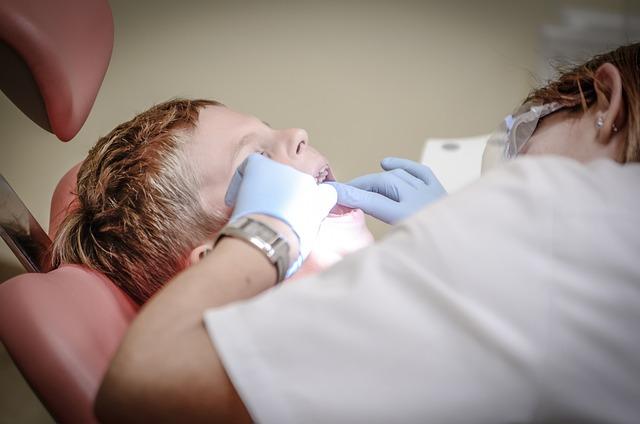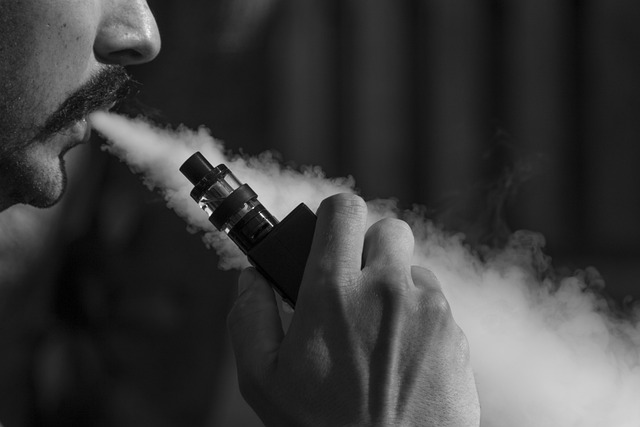Can I Hit My Vape After Wisdom Teeth Removal? Considerations
Wisdom teeth removal can be both a relief and a hassle. While bidding farewell to those pesky molars is certainly a cause for celebration, navigating the post-surgery do’s and don’ts can leave you with a laundry list of questions. One burning inquiry that often arises among vape enthusiasts is: “Can I hit my vape after wisdom teeth removal?” In this article, we will delve into the considerations surrounding this topic, providing you with a confident and knowledgeable perspective to help you make an informed decision. So, sit back, relax, and let’s clear the air on this matter with a natural human tone that avoids unnecessary repetition.
1. Understanding Wisdom Teeth Removal: A Guide to the Healing Process
After undergoing wisdom teeth removal, it is important to understand the healing process to ensure a smooth recovery. While every individual may experience slightly different symptoms and timelines, there are some general guidelines to keep in mind.
1. Immediate Post-Op
Directly after the surgery, it is common to experience some bleeding in the extraction sites. Gauze pads will be provided to bite down on to help control the bleeding. It is crucial to avoid touching the surgical area with your tongue or fingers and refrain from rinsing or spitting forcefully for at least 24 hours. Swelling and bruising may occur, primarily around the cheeks and jawline. To minimize these effects, apply an ice pack on the affected area for 15 minutes at a time, with a 15-minute break in between. This can be done for the first 24 hours.
2. Managing Discomfort
Pain and discomfort are common after wisdom teeth removal, but can be managed effectively. Your oral surgeon will likely prescribe pain medication, which should be taken as directed. Over-the-counter painkillers such as ibuprofen can also be used, but consult your dentist before adding any new medications to your routine. To alleviate swelling and pain, rinse your mouth gently with warm saltwater solution multiple times a day, beginning 24 hours after the surgery. Be careful not to spit forcefully, as this may dislodge the blood clot and hinder healing. Additionally, sticking to a soft or liquid diet for the first few days can prevent irritation and allow proper healing.
- Avoid smoking or drinking through a straw, as the suction can dislodge the blood clot and cause a painful condition known as dry socket.
- Take any prescribed antibiotics as directed, even if you are not experiencing any signs of infection.
- Maintain good oral hygiene by gently brushing your teeth, avoiding the extraction sites for the first 24 hours.
- Attend all follow-up appointments with your oral surgeon to ensure proper healing and address any concerns.
Remember, each person’s healing process is unique, and complications are rare. However, if you experience severe pain, excessive bleeding, swelling that worsens after a few days, or any other concerning symptoms, do not hesitate to contact your oral surgeon immediately for further guidance.

2. The Impact of Vaping on Post-Wisdom Teeth Removal Recovery
Recovering from wisdom teeth removal can be a challenging process, and it’s important to consider the impact of vaping on this recovery period. While vaping may seem like a harmless alternative to smoking, it can still have negative effects on your healing process. Here’s what you need to know:
1. Delayed Healing: Vaping introduces chemicals and irritants into your mouth, which can slow down the healing process after wisdom teeth removal. The heat from vaping devices can cause inflammation and irritation to the surgical sites, leading to prolonged pain and discomfort. It’s crucial to give your body the best chance at healing by avoiding vaping during this period.
2. Increased Risk of Dry Socket: Dry socket is a common complication after wisdom teeth removal, and vaping can increase the risk of developing this painful condition. The suction created while vaping can dislodge the blood clot that forms in the extraction site, exposing the nerve and bone. This can lead to severe pain and delay the healing process. To prevent this, it’s advised to abstain from vaping until your dentist gives you the green light.

3. Weighing the Risks: Factors to Consider Before Vaping After Wisdom Teeth Removal
Before deciding to vape after wisdom teeth removal, it’s important to carefully weigh the risks involved. While vaping may seem like a harmless alternative to smoking, there are several factors you should consider to ensure a smooth recovery process:
- Increased risk of dry socket: Dry socket is a common complication after wisdom teeth extraction, where the blood clot that forms in the socket is dislodged or dissolves prematurely. Vaping can create suction in the mouth, which may disrupt the blood clot, leading to a painful condition. It is advisable to wait until the socket is fully healed before resuming vaping.
- Potential irritation and infection: The chemicals and flavors present in vape juices can cause irritation to the sensitive surgical site, delaying the healing process. Furthermore, vaping introduces foreign substances into the mouth, increasing the risk of infection. To minimize these risks, it’s best to avoid vaping until your dentist gives you the green light.
While it may be tempting to resume vaping shortly after wisdom teeth removal, it’s crucial to prioritize your oral health and recovery. Consulting with your dentist and following their recommendations will ensure a safe and successful healing process. Remember, patience is key, and it’s better to be cautious and delay vaping than to risk complications and prolonged discomfort.

4. Expert Insights: Dentists’ Advice on Vaping Post-Wisdom Teeth Extraction
After undergoing wisdom teeth extraction, it is crucial to follow proper care instructions to ensure a smooth recovery process. As vaping gains popularity, many patients wonder if it is safe to vape after this dental procedure. To shed light on this matter, we consulted experienced dentists who provided valuable insights and advice:
1. Avoid vaping for at least 72 hours:
- During the initial healing period, it is advisable to refrain from vaping to minimize the risk of complications.
- Exposing the extraction site to the toxins present in vape aerosols can impede the healing process and increase the chances of infection.
- Waiting for 72 hours allows the blood clot to form properly, protecting the extraction site and promoting faster healing.
2. Be cautious with temperature and pressure:
- If you choose to vape after the initial recovery period, ensure the temperature of the vapor is not too hot, as this can irritate the surgical area.
- Additionally, avoid drawing too hard on your vape device, as the suction can dislodge the blood clot and lead to a painful condition known as dry socket.
- Opt for shorter and less forceful puffs to minimize the risk of complications.

5. Potential Complications: How Vaping Can Affect Your Healing Process
Vaping has become increasingly popular in recent years, but it’s important to be aware of the potential complications it can have on your healing process. Here are some ways vaping can affect your healing:
1. Delayed wound healing: Vaping has been found to impair the body’s ability to heal wounds. The chemicals present in e-cigarettes can inhibit collagen production and impair the function of immune cells, leading to slower healing times for cuts, burns, and other injuries.
2. Increased risk of infection: Vaping can weaken the immune system, making you more susceptible to infections. The chemicals in e-cigarettes can compromise the body’s defense mechanisms, making it harder for the body to fight off bacteria and viruses. This can lead to an increased risk of developing infections, which can further delay the healing process.
6. Alternatives to Vaping: Exploring Safer Options for Oral Health Post-Surgery
After oral surgery, it is crucial to avoid vaping as it can hinder the healing process and potentially lead to complications. However, there are several alternative options that can be explored to satisfy nicotine cravings and maintain oral health.
- Nicotine patches or gum: These can help manage nicotine withdrawal symptoms without compromising oral health. They provide a controlled release of nicotine, reducing the urge to vape while supporting the healing process.
- Non-nicotine vape alternatives: Some individuals may find comfort in using vape devices that do not contain nicotine. These alternatives can provide a similar sensation without the harmful effects of nicotine on oral health.
- Chewing on sugar-free gum: Chewing gum can help keep the mouth occupied and alleviate cravings. Opt for sugar-free options to avoid any negative impact on dental health.
It is important to consult with your dentist or oral surgeon before choosing any alternative options, as they can provide personalized recommendations based on your specific needs and condition. By exploring safer alternatives to vaping, you can promote better oral health and support the healing process after surgery.
7. Conclusion: Making an Informed Decision About Vaping After Wisdom Teeth Removal
After considering all the information presented, it is important to make an informed decision about vaping following wisdom teeth removal. While vaping may seem like a harmless alternative to smoking, it is essential to understand the potential risks and implications it may have on the healing process. Here are some key points to consider:
1. Delaying the Healing Process: Vaping introduces chemicals and heat to the oral cavity, which can hinder the healing process after wisdom teeth removal. The suction created while vaping can disrupt the blood clot that forms in the extraction site, leading to a condition called dry socket. This painful condition can significantly prolong the recovery time and may require additional treatment.
2. Increased Risk of Infection: Vaping can compromise the body’s natural defense mechanisms, making it more susceptible to infections. The nicotine and other chemicals present in e-cigarettes can weaken the immune system, making it harder for the body to fight off bacteria and viruses. This can increase the risk of developing an infection in the extraction site, which can lead to complications and prolonged healing.
Frequently Asked Questions
Q: Can I hit my vape after wisdom teeth removal?
A: It is generally not recommended to use a vape or any form of smoking after wisdom teeth removal due to several important considerations.
Q: What are the main considerations that advise against vaping after wisdom teeth removal?
A: There are a few key factors to consider. Firstly, the act of vaping involves inhaling and exhaling vapor, which can create suction or negative pressure in the mouth. This suction can potentially dislodge blood clots that have formed in the extraction sites, leading to a condition called dry socket. Secondly, vaping introduces foreign substances into the mouth, which may hinder the healing process and increase the risk of infection. Lastly, the chemicals found in vape liquids can be irritating to the delicate tissues in the mouth, potentially causing discomfort or delayed healing.
Q: What is dry socket and why is it a concern?
A: Dry socket is a condition that occurs when the blood clot that forms in the extraction site becomes dislodged or dissolves prematurely. This exposes the nerves and bone in the socket, leading to intense pain, bad breath, and delayed healing. Smoking, including vaping, is one of the primary risk factors for developing dry socket after wisdom teeth removal.
Q: How long should I wait before vaping after wisdom teeth removal?
A: It is highly recommended to wait at least 72 hours, or three days, before resuming any form of smoking, including vaping, after wisdom teeth removal. This timeframe allows for proper blood clot formation and initial healing to take place, reducing the risk of complications.
Q: Are there any alternatives to vaping during the healing period?
A: Yes, there are alternative options that can help satisfy nicotine cravings without the risks associated with vaping. Nicotine patches, gums, or lozenges are commonly used during the healing period, as they do not involve inhaling any substances and pose a lower risk of complications.
Q: Are there any other activities or habits I should avoid after wisdom teeth removal?
A: Yes, apart from smoking or vaping, it is advisable to avoid drinking through a straw, as the suction created can also dislodge blood clots. Additionally, vigorous rinsing or spitting should be avoided for the first 24 hours to allow for proper healing. Eating soft foods, maintaining good oral hygiene, and following your dentist’s post-operative instructions are crucial for a smooth recovery.
Q: Can I vape if I have already fully healed from wisdom teeth removal?
A: Once you have fully healed, there should be no immediate concerns regarding vaping after wisdom teeth removal. However, it is always wise to consult with your dentist or oral surgeon before resuming any smoking habits to ensure your mouth is in optimal condition.
Remember, it is essential to prioritize your oral health and follow the guidance of dental professionals to promote a smooth recovery after wisdom teeth removal.
Insights and Conclusions
In conclusion, when it comes to the question of whether you can hit your vape after wisdom teeth removal, there are several important considerations to keep in mind.
Firstly, it is crucial to follow your dentist’s instructions and adhere to the prescribed healing time. Rushing to resume vaping can potentially hinder the healing process and lead to complications.
Secondly, the suction created during vaping can pose a risk of dislodging blood clots and causing dry socket, a painful condition that can significantly delay your recovery.
Furthermore, the chemicals present in e-cigarettes can irritate the surgical site, leading to inflammation and potential infections.
Lastly, it is always best to consult with your dentist or oral surgeon before making any decisions regarding vaping after wisdom teeth removal. They will provide you with personalized advice based on your unique circumstances and the specific details of your surgery.
Remember, your oral health and recovery should be your top priority. By giving yourself the necessary time to heal and seeking professional guidance, you can ensure a smooth and successful recovery from your wisdom teeth removal procedure.






